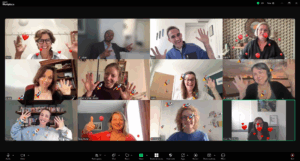With teamwork and relationships, harmony is often equated with agreement. However, the Organisation and Relationship Systems Coaching (ORSC) methodology introduces a novel concept: the importance of alignment over agreement. This paradigm shift has the potential to revolutionise the way we approach relationships, both in professional and personal spheres.
In this blog post, we’ll explore the significance of alignment, how it differs from agreement, and how ORSC teaches alignment methods to cultivate robust, resilient relationships.
Alignment vs. Agreement: Understanding the Difference…
At first glance, alignment and agreement might seem synonymous, but they represent distinct approaches to relationships:
– Agreement: Agreement implies that all parties share the same beliefs, values, and perspectives. While agreement can be desirable, it’s not always realistic or sustainable in the complexity of real-world relationships.
– Alignment: Alignment, on the other hand, emphasises a shared commitment to a common goal or purpose, even when individuals may have differing viewpoints. It’s about finding a unifying vision or intention that guides the collective effort.
The Power of Alignment:
1. Resilience in Diversity: In diverse teams and relationships, achieving complete agreement on every issue is challenging. Alignment allows individuals to appreciate and respect each other’s unique perspectives while working collectively toward a shared goal. This diversity can lead to more creative and resilient solutions.
2. Conflict Resolution: Alignment methods taught in ORSC enable teams to navigate conflicts effectively. Instead of focusing on who is right or wrong, the emphasis is on aligning around the best path forward, diffusing tensions, and maintaining strong relationships.
3. Open Communication: ORSC promotes open, honest, and non-defensive communication. This communication style fosters understanding and empathy, enabling team members to express their thoughts and feelings without fear of judgment.
4. Shared Accountability: Alignment encourages shared responsibility and accountability. When everyone is aligned with the same goals, individuals are more likely to uphold their commitments, fostering trust within the group.
5. Flexibility: In a rapidly changing world, rigid agreement can hinder adaptability. Alignment methods taught in ORSC empower teams to adjust their strategies while remaining true to their shared purpose.
ORSC’s Role in Teaching Alignment:
ORSC is an invaluable tool for teaching alignment methods that empower individuals and teams to:
1. Define Shared Goals: ORSC helps groups articulate their shared goals and intentions, even if there are disagreements on how to achieve them.
2. Foster Open Dialogue: ORSC encourages open, non-defensive conversations where team members can share their perspectives and concerns.
3. Embrace Diversity: ORSC teaches how to leverage diverse perspectives as strengths rather than sources of conflict.
4. Navigate Conflict: ORSC equips individuals with conflict resolution skills that maintain the integrity of relationships.
5. Maintain Focus: ORSC ensures that alignment remains at the core of decision-making and problem-solving processes.
The shift from seeking agreement to valuing alignment is a transformative concept that can create stronger, more resilient relationships. ORSC provides the tools and methodologies to teach alignment, enabling teams and individuals to thrive, even in the face of differing viewpoints.
In the end, it’s not about everyone being on the same page; it’s about everyone being committed to the same story, journey, and destination.
You can book onto one of our 2024 introductory courses via the links below.






